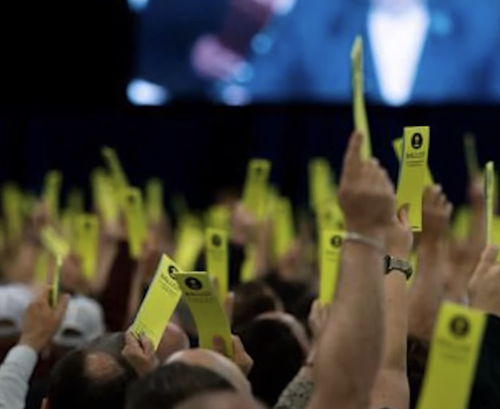QUESTION:
Is it time to rename the Southern Baptist Convention?
THE RELIGION GUY’S ANSWER:
As it looks toward the annual meeting in June, the Southern Baptist Convention (SBC), by far America’s largest Protestant denomination, faces difficult issues — new and old.
What tactics might halt its recent membership decline? Should women be forbidden clergy ordination even as assistants, educators, or chaplains? What steps might soothe racial tensions? Are churches too political this election year? And most important, how can the SBC cleanse itself from ongoing sexual-abuse scandals?
With all that’s going on, one matter is being ignored. But given the current squabbles and embarrassments, this would seem a good time for the denomination to re-brand itself with a new name.
For starters, the “Southern” monicker is no longer accurate.
Yes, some four-fifths of SBC members live in the traditional southeastern turf. But this church body is truly national, active all over the United States, and international, with many overseas staffers and connections.
Then there’s unfortunate history to overcome in which the name is enmeshed with slavery. The SBC was formed 179 years ago in a breakaway from U.S. Baptists who insisted slave-owners should no longer be appointed as missionaries. The southern branch was then steadfastly loyal to the Confederacy cause through the Civil War.
Yes, there were secondary factors in this split, including regional solidarity and the southerners’ desire to have a more centralized form of organization. But Baptists’ disagreement over slavery was the key.










